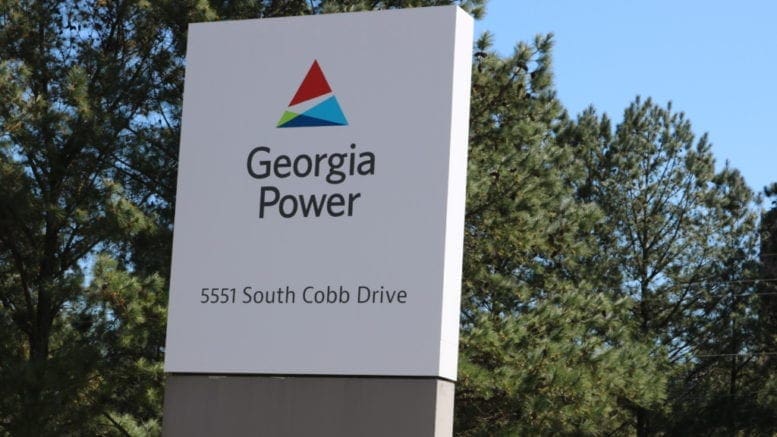Georgia Power will have to come up with a new plan for its coal ash if a new bill filed in the Georgia House passes.
Georgia law does not currently require that coal ash, the toxic waste created by burning coal in coal-fired plants, be stored in lined facilities that prevent contaminants from leaching into the groundwater. House Bill 756, the “banana peel” bill, aims to change that.
“Banana peels and other household garbage have to go in waste disposal facilities that have liners and leachate collection systems. Coal ash, unlike household garbage, does not biodegrade over time and contains toxic metals. Coal ash should be disposed of at least as stringently as banana peels so that our groundwater is protected from the dangerous heavy metals contained in coal ash, like mercury, lead, and arsenic,” Fletcher Sams, executive director of Altamaha Riverkeeper, wrote in an email.
Rep. Mary Margaret Oliver (D-Decatur) is one of the co-sponsors of HB 756 and is also on the Altamaha Riverkeeper board of directors.
“There are five unlined coal ponds that are being decommissioned…Plant Scherer in Monroe County is the largest coal-fired plant in North America and produces the largest amount of coal ash residue. Its ponds are unlined and there is a real question about whether an unlined coal ash pond can result in significant damage to our aquifer,” Oliver told the Courier.
“Our goal is to make sure all coal ash ponds are lined…it’s a complex issue.
There’s a conflict between state and federal regulations,” she said.
Rep. Mary Frances Williams (D-Marietta) was shocked to learn there was coal ash in unlined pits at Plant McDonough on the banks of the Chattahoochee River near Smyrna, during the 2019 legislative session. She introduced House Resolution 257 last year, urging Georgia Power to remove the coal ash from Cobb County and place it in a lined landfill. She is also a co-sponsor for HB 756.
“I was really encouraged by what happened in North Carolina with Duke Energy…every bit of their coal ash will go into lined pits,” Williams said of the legal agreement that was announced in early January. The settlement was the result of a catastrophic coal ash spill into the Dan River in 2014.
Rep. Erick Allen (D-Smyrna) said he signed on because of the close proximity of Plant McDonough to his district and the concerns raised by his constituents.
“My support of this bill is in response to listening to them over the summer,” he said.
In addition to the plants in Cobb and Monroe Counties, there are three other locations in which Georgia Power plans to close and cap unlined coal ash ponds: Plant Wansley in Heard County between Franklin and Carrollton, Plant Yates near Newnan in Coweta County, and Plant Hammond in Floyd County near Rome.
The bill, which is also sponsored by Rep. Robert Trammell (D-Luthersville), Rep. Jasmine Clark (D-Lilburn), and Rep. Debbie Buckner (D-Junction City), is gaining bipartisan support, starting with Rep. Jeff Jones (R-Brunswick). It has been assigned to the Natural Resources Committee.
Sen. Jen Jordan (D-Dist. 6) has also filed a companion bill in the senate. SB 297 makes similar changes to the way coal ash is handled in Georgia.

Rebecca Gaunt earned a degree in journalism from the University of Georgia and a master’s degree in education from Oglethorpe University. After teaching elementary school for several years, she returned to writing. She lives in Marietta with her husband, son, two cats, and a dog. In her spare time, she loves to read, binge Netflix and travel.
